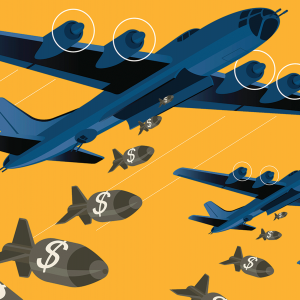
Lindsay Koshgarian is program director for the National Priorities Project, a people’s guide to the federal budget.
Posts By This Author
Poverty Is a Policy Choice
FOR MANY, TAX season is a scramble. Where are the receipts? How much do we owe? Why is it so complicated? But it’s also an annual opportunity to review our social contract, our shared moral obligation to fund the common good. The taxes we pay can affirm life, care for our elders, feed the hungry, house the poor, and care for creation. Taxes can also underwrite a bloated military budget that takes life and incentivizes war.
Until 2015, the largest segment of a typical tax bill did not support programs of social uplift for Americans, but instead supported the military-industrial complex and war. Over the last few years, however, there’s been a shift, even as military costs have continued to rise. That shift is due in part to expanded health care access — but also in part due to health care inflation. Now, providing affordable health care for those over 65 or on limited income through Medicare and Medicaid is the most significant portion
of your tax bill. Paying for war or supporting Americans at home are in a battle for top tax billing.
The average U.S. taxpayer contributes more than $13,000 each year in federal income taxes, according to our research at the National Priorities Project. That’s not a small chunk of change for anyone but the wealthiest among us. When we pool our funds, our federal income taxes are a powerful force, accounting for nearly half of federal revenue (much of the rest also comes from us, in the form of other payroll taxes).
